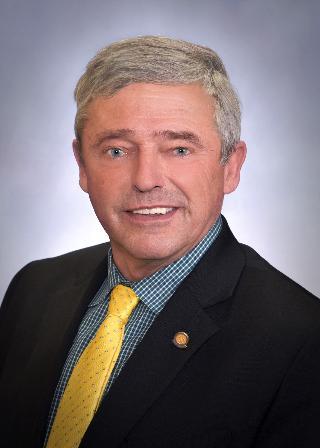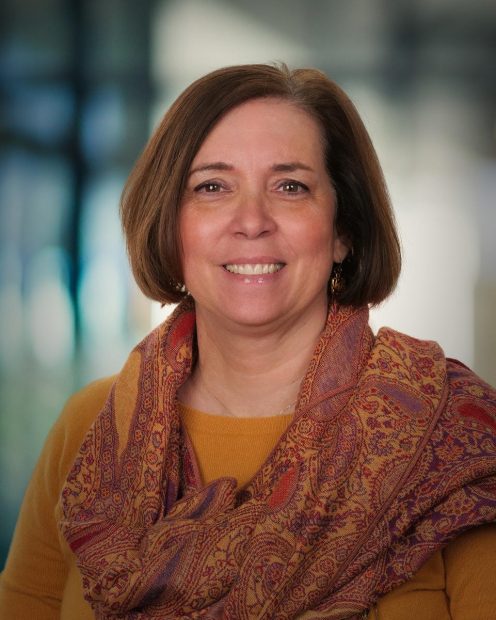Pocatello/Chubbuck school district leaders voiced their concerns about possible private school choice measures at a Monday meeting with a half-dozen area lawmakers.
The conversation was fraught at times as politicians shared opposing views, and as school leaders objected to private school subsidies.
The main points of contention: whether a private school choice measure is an inevitability in Idaho, and whether legislators can uphold their constitutional obligation to maintain a “general, uniform, and thorough system of public, free common schools” while also subsidizing private education.
The talks came ahead of a 2025 legislative session where private school choice will likely become a central issue, and where lawmakers have swung further right. At the same time, state Superintendent Debbie Critchfield has said she is working with Gov. Brad Little on a private school choice measure.
“The political dynamics have changed drastically, and the discussion is going to happen, and it’s going to have a high probability of some degree of success,” said Sen. Jim Guthrie, R-McCammon. “And whether I like that or whether I don’t, that’s the reality we’re facing.”
Lawmakers present at the meeting included:
- Sen. James Ruchti, D-Pocatello
- Sen. Jim Guthrie, R-McCammon
- Rep. Dustin Manwaring, R-Pocatello
- Rep. Rick Cheatum, R-Pocatello
- Rep. Dan Garner, R-Clifton
- Rep. Tanya Burgoyne, R-Pocatello
Manwaring, Ruchti share opposing views on private school choice
Rep. Dustin Manwaring, R-Pocatello, said private school choice is a problem that’s “not going away by saying no.” Instead of just opposing a private school choice measure, providing feedback on how to refine it would be more helpful, he said.
Trustee Heather Clarke shared a number of concerns about a voucher-like system — including budgetary impacts and a lack of accountability — but said if private school choice is happening then maybe it’s necessary to create a “palatable” proposal.
But Sen. James Ruchti, D-Pocatello, said “ it’s a mistake to treat this as something you have to compromise on because … once you compromise you open the door.”
“Even if there are sideboards put on … those sideboards will be removed in another few years,” he continued. “So this is the place to take a stand.”
Guthrie said President-elect Donald Trump’s incoming administration may change the conversation.
“If we were smart, we would wait to see what that looks like, because we might have to react in a totally different way, depending on how radical that process gets from him,” Guthrie said.

Rep. Tanya Burgoyne, R-Pocatello, expressed solidarity with Manwaring’s views. Rep. Rick Cheatum, R-Pocatello, was largely quiet during the conversation, but has previously expressed concern about a lack of choices for rural students. And Rep. Dan Garner, R-Clifton, left the meeting early but has previously said a measure will likely pass and he hopes to “tack on some accountability.”
For their part, school leaders expressed an array of concerns from the impact on rural school districts to fraud prevention to statewide budgetary impacts, citing Arizona’s controversial private school choice implementation. They also shared the Idaho School Boards Association’s anti- private school choice position, and cited data about the ballooning costs of universal private school choice in Arizona.
“We just wanted to highlight for a minute the financial strain on taxpayers,” Pocatello/Chubbuck Superintendent Doug Howell said. “It seems like something very innocuous turns into something very infectious.”
Courtney Fisher, the district’s communications director, said she attended a session on private school choice at the ISBA convention, and kept hearing that voucher-like systems are “a budget buster, not just for the education budget, but for the entire state.”
At one point, Burgoyne asked what the ISBA is. Told it is a nonprofit advocacy group that represents school trustees statewide, she questioned the veracity of its data.

Clarke said she was worried about private school choice opening the doors for predatory businesses — “entrepreneurial types from outside of our community that see schools as cash cows, and that there’s money to be made here.”
Legislators, school leaders disagree on best uses of state dollars
Lawmakers are constitutionally required to maintain thorough and uniform public education systems — and Manwaring said he thinks they can do that, and provide families with funds for private school.
But Manwaring said he would only vote for a tax credit — his preferred avenue for private school choice — if the “school district facilities problem” is solved and rural districts are not harmed in the process.

Plus he said “a lot of what goes on at a school is not anything that money can fix … It’s what happens in the home.”
He said a student can have the best teacher or principal in the world, but if they arrive at school and “they haven’t had sleep, and they have a one-parent household, they didn’t have breakfast … if you come to school with these issues, all the money in the world isn’t going to fix that.”
Amy Bowie, the district’s curriculum director, disagreed and said money can positively impact students’ education and lives.
“It doesn’t take their circumstances away or their pain away or their daily reality away, but I have watched those resources impact lives. I’ve watched counselors change students’ lives. I’ve watched interventionists — who have time to work one-on-one with kids who didn’t have a mom to read to them every night — I’ve watched those resources change lives.”
Manwaring said he agreed and he didn’t want to take resources away from those kids, but thought he could support public and private school students. “I think we can do both. I truly do.”
But Ruchti said lawmakers are not obligated to provide money to private schools, religious schools or home schools, but they are obligated to support public education. And whether private school subsidies come from education coffers or general coffers, it’s still money that could have gone to public schools.

“This is a time when people have to stand up for public education so we’re not going down this path,” Ruchti said. “And if it happens, there’ll be a price to pay, but at least we’ve tried to save our public education systems.”
Manwaring said his position is about “parents being able to have the most flexibility” and “broadening the scope of the suite of things that they can use to educate their kids the way that they see fit.”
“I think there’s truly going to be opportunities that come from this (reapportionment) of our education system,” he said. “And going forward I think we’re all hopefully going to get to a place where we have better education outcomes, period.”
Ruchti said he generally works well with Manwaring “but this is just one of those issues we don’t agree on. I mean, we couldn’t be more opposed on it.”
“I challenge those who are supporting these vouchers to show us a state where they have done this and walked away from it without accountability problems, without budget busters,” Ruchti said.
Guthrie said one challenge is that public schools already have all the infrastructure and extracurriculars for students — such as sports, band, choir and debate. And private schools should offer the same, so public schools don’t have to fill those gaps — and foot the bill — to offer those programs to private school students.
“If you’re going to loot the taxpayer system that way, (private schools) should have to fund the full complement of educational opportunities for those students,” Guthrie said.
School leaders urge lawmakers to delay graduation requirement implementation, clarify Band-aid bill
At the meeting, school leaders also asked lawmakers about the proposed changes to graduation requirements they’ll be voting on. Currently, the changes are slated to affect this year’s freshman. Bowie urged lawmakers to extend the implementation deadline by as much as two years so districts and students would have more time to adjust.
To review all the recommendations and reports district leaders gave lawmakers, go here.
School leaders also asked the lawmakers to clarify language in what some call the Band-aid bill so that it’s more specific.
